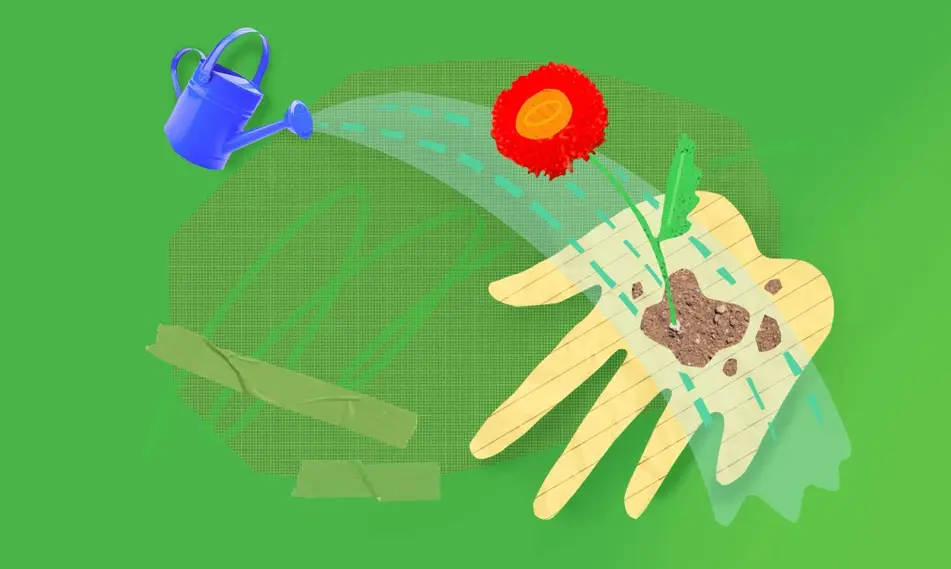9 Tips for How to Be a Good Mentee

Today, we're talking mentorship. Read on for advice on how to make the most of this professional relationship as a mentee, then let us know in the comments: What’s one lesson from a mentor that’s stayed with you throughout your career?
***
There’s little doubt that mentorship can add value to your career. And although there are countless resources advising you on how to find a mentor, there’s less emphasis on what happens after you’ve found one. So, how can you learn how to be a good mentee?
Read on to learn the habits of successful mentees and how to derive the most benefit from your mentorship experience.
How to be a good mentee
Pay attention to your mentor
Once you have found your mentor, it’s key to remember that your new relationship isn’t a one-way street. Like all relationships, it’s based on reciprocation.
Your mentor is investing the time and energy to guide and advise you, so you have to make it worth their while. As a mentee, this means showing your mentor that you’re paying attention. You can do this by letting them know when you have followed their advice, when you were able to apply a lesson they imparted, or by volunteering to help with tasks or meet a deadline.
The more you are able to demonstrate the value you are deriving from your mentorship, the more value you—and your mentor—will continue to accrue as your relationship matures.
Nine ways to connect with your mentor
Successful menteeship depends on the attitude and practices you demonstrate in the workplace. Here are nine habits that your mentor will appreciate—and that will help you make the most of your mentorship:
- Have respect. This should go without saying. Mentorship isn’t mandatory, so it behooves you to show your mentor that you take your voluntary commitment seriously. Be respectful of your mentor’s time and effort to help you, and always check your ego at the door.
- Communicate clear expectations. What you get out of your mentorship depends on what you invest in it. It’s therefore worthwhile to clarify what your goals are for the relationship and let your mentor know. This gives both of you a barometer against which to measure progress and ensure that your relationship continues to be of mutual value.
- Be proactive. It is not your mentor’s responsibility to schedule meetings with you or to find out if you followed their advice. It’s your responsibility to be on top of those details.
- Ask questions. Asking thoughtful questions can be a determining factor in how beneficial your mentorship actually is. The questions you ask don’t only demonstrate your curiosity and desire to learn, but also encourage more relevant, in-depth conversation and advice you can apply to your work and life.
- Be trustworthy. Trust can only be built over time, so it’s important that you honor the commitment you have made to your mentor. Keep any confidences you are privy to and responsibly set expectations. For example, if you are unable to make a scheduled lunch, give your mentor a heads-up as soon as you know and propose a new date and time after consulting their calendar.
- Underpromise and overdeliver. A lot of the mentor-mentee relationship is qualitative. But there is also a more tangible part that highlights your potential and drive to your mentor: your ability to complete tasks and projects. For instance, if you want your mentor to review a report you’re working on, let them know when you plan to send it (“in two weeks”), but submit it ahead of schedule. This not only signals your discipline and commitment, but you have now also given your mentor extra time to review your work.
- Ask for feedback. Whether you’re sharing your work or want to know your areas of improvement, do not be afraid to ask your mentor for feedback. Come to your feedback conversation prepared: if there are specific aspects of your work life you want advice on, ask specific questions and follow up if something is unclear.
- … and give feedback. Giving your mentor feedback does not mean you’re grading the quality of their work. Instead, you’re letting your mentor know how you think your mentorship is going. One way to do this is to talk about your relationship within the context of the clear goals you communicated at the outset. Or you could regularly let your mentor know how and when you have applied their advice and lessons to your work, and what the results were.
- Express gratitude. After every meeting or successfully applied counsel, thank your mentor for their time. A simple "thank you" goes a long way in directly letting your mentor know how much you value and respect their time, effort, and experience.
Beyond mentorship
Practicing the above habits will not only help you learn how to be a good mentee and have a valuable mentorship experience, but it will also prepare you for when the roles are reversed and you become a mentor.
One of the best things you can do after you have a positive mentorship experience is to pay it forward and become a mentor. Whether it’s in the near future or farther off, your experience and the lessons you learned from being a thoughtful mentee will support your ability to be a strong mentor to the next generation of young professionals.
Nisha Kumar Kulkarni is a writer and creative coach in New York City. She helps women living with chronic illness and mental health challenges to pursue their passion projects without compromising their health.






